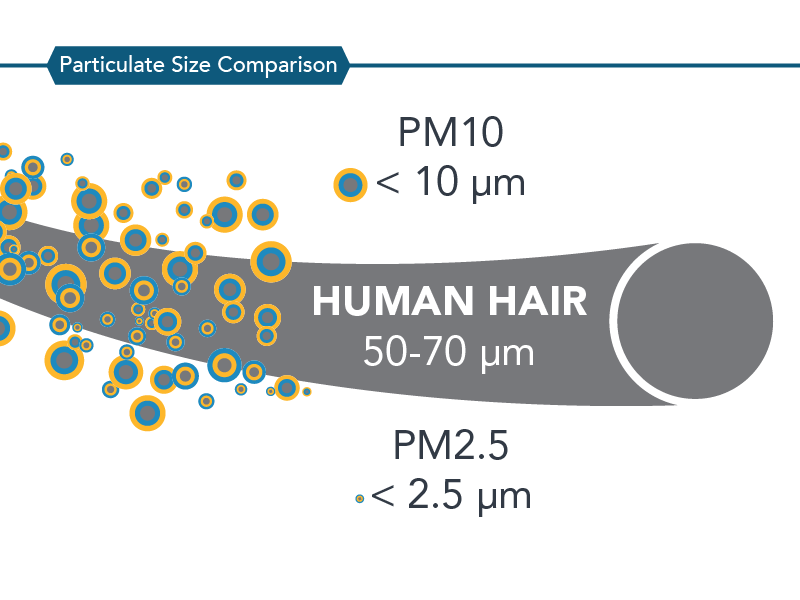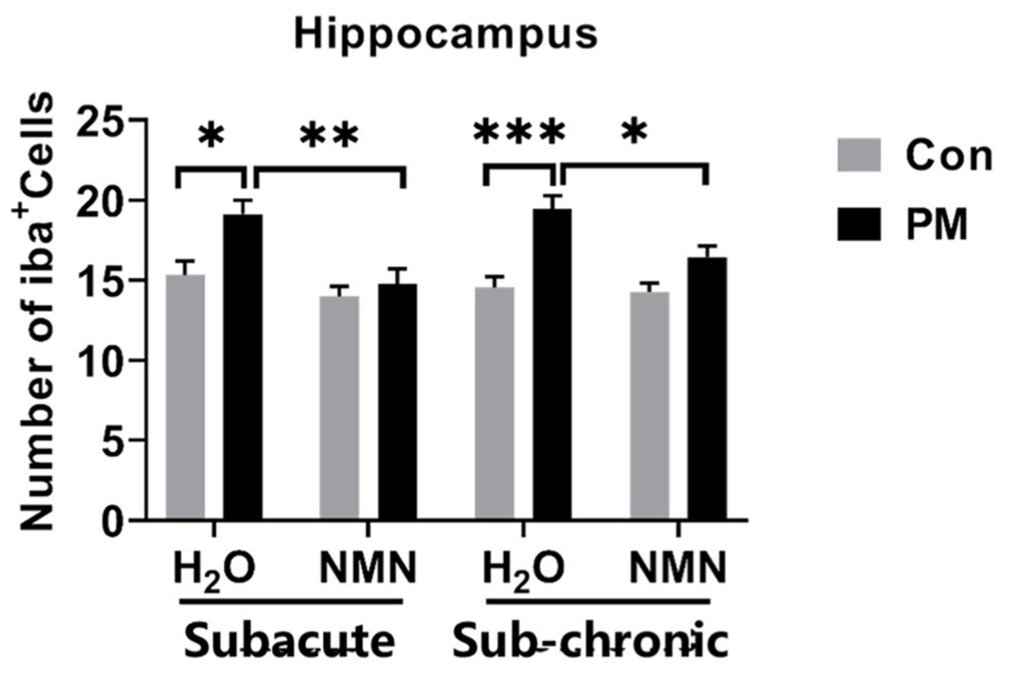How NMN Could Protect the Brain from Wild Fire Smoke and Other Pollutants
NMN alleviates the age-accelerating brain inflammation induced by the fine particles within wildfire smoke and polluted air in mice.
Highlights:
- NMN prevents brain inflammation, memory loss, and anxious behavior in mice exposed to fine particles often found in polluted air and smoke.
- NMN may protect the brain by restoring cellular fat levels.
Within the polluted air are unseen and potentially dangerous particles collectively known as particulate matter (PM). Smaller in diameter than human hair, PM can make it into our bloodstream and wreak havoc on our tissues and organs, including the brain.

Supporting the dangers of PM, a new study published in Particle and Fibre Toxicology showed that PM exposure leads to cognitive deficits and brain inflammation in mice. However, the researchers also showed that NMN prevents these adverse brain health effects. These findings suggest that NMN supplementation can mitigate the accelerated brain aging induced by air pollution and wildfire smoke.
NMN Prevents PM-Induced Brain Aging
To determine the effect of PM on the brain, researchers exposed mice to approximately 70 µg/m3 of PM2.5, which is quite high for the United States but can be observed in some areas of China and other countries. Wildfires can also lead to exceedingly high PM2.5 levels. For example, a California wildfire in 2020 caused PM2.5 levels to skyrocket to levels higher than 500 µg/m3 for four days.
The researchers exposed mice to ambient PM2.5 for 11 days (subacute) or 16 weeks (sub-chronic). As a result of subacute exposure, the mice exhibited increases in systemic inflammation and oxidative stress, key indicators of biological aging. Furthermore, as a result of sub-chronic exposure, the mice had higher levels of inflammatory microglia cells in areas of the brain like the hippocampus — the brain region that consolidates memories. Moreover, the mice also exhibited deficits in memory and learning, and displayed anxious-like behavior. These findings reveal that high levels of PM exposure lead to brain inflammation, cognitive deficits, and emotional dysregulation in mice.
However, when mice were treated with NMN two weeks prior to being exposed to PM, the age-accelerating effects of PM were prevented. That is, systemic inflammation and oxidative stress, brain microglia activation, learning and memory deficits, and anxiety were prevented by 500 mg/kg/day of NMN dissolved in water. These findings suggest that oral NMN can prevent PM-induced brain aging in mice.

How Does NMN Prevent PM-Induced Brain Aging?
Lipids, which include many variations of fatty acids, are vital for how our cells function. This includes neurons and other brain cells like microglia — the brain’s resident immune cells. The researchers found that PM exposure dysregulated many lipids in brain regions like the hippocampus. Dysregulated lipid metabolism can lead to increased inflammation, oxidative stress, and neurodegeneration. For example, lipid droplets, which form when lipid levels are too high, can activate microglia and are associated with Parkinson’s and Alzheimer’s disease.
However, NMN restored lipid homeostasis, which could protect the brain from inflammation and oxidative stress. This occurred, among other regions, both in the hippocampus and the hypothalamus — a critical brain region involved in immune regulation and mood. Thus, by restoring lipid levels, NMN can potentially reduce age-accelerating inflammation and oxidative stress in key brain regions. It follows that NMN may prevent cognitive and emotional deficits induced by PM by maintaining brain health at the cellular level.
NMN Protects Skin and Lungs from PM
NMN has previously been shown to alleviate the age-accelerating effects of PM in other tissues. One study showed that NMN reduces PM-induced inflammation and oxidative stress in human skin cells. Furthermore, another study showed NMN reduces PM-induced inflammation and lung injury in mice. These studies demonstrate that NMN can protect multiple organs against the ravages of PM in human cells and mice.
Whether NMN can protect against PM-induced aging in humans remains an open question. The level of PM exposure used to induce brain inflammation in mice was higher than most individuals will experience. However, it is possible that NMN can help alleviate subtle elevations in inflammation and oxidative stress in regions where PM levels are only moderately high. Further studies will be needed to confirm this notion.

